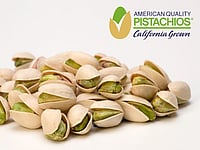The global dietary supplement industry is projected to exceed $230 billion by 2027, yet many consumers assume that all supplements undergo rigorous government approval before hitting the market. Unlike prescription drugs, dietary supplements are not FDA-approved before their sale, which raises critical questions about their safety, effectiveness, and labelling accuracy.
This guide explores how the U.S. Food and Drug Administration (FDA) regulates dietary supplements, the challenges of ensuring quality control, and what consumers should know before purchasing supplements.
How the FDA Regulates Dietary Supplements
1. Supplements Are Classified as Food, Not Drugs
The Dietary Supplement Health and Education Act (DSHEA) of 1994 legally defines dietary supplements as a category of food.
Unlike pharmaceutical drugs, supplements do not require FDA approval before being marketed.
This means that manufacturers, not the FDA, are responsible for ensuring their products are safe and accurately labelled.
2. Pre-Market Approval Is Not Required
The FDA does not test supplements for safety or efficacy before they are sold.
Manufacturers can introduce new products without prior FDA evaluation, provided they meet specific guidelines.
The FDA can only take action after a supplement is found to be unsafe or mislabeled.
3. Good Manufacturing Practices (GMPs) Are Required
The FDA enforces Good Manufacturing Practices (GMPs) to ensure supplements meet safety and quality standards.
These regulations require manufacturers to:
Use proper ingredient sourcing.
Ensure accurate labelling of active ingredients.
Test for contaminants and impurities.
However, FDA inspections are limited, meaning some companies may not fully comply with GMP standards.
4. New Ingredients Require Notification but Not Approval
If a supplement contains a new dietary ingredient (NDI) (an ingredient not marketed before 1994), the manufacturer must notify the FDA.
However, notification does not mean approval—the FDA only reviews whether the ingredient appears to be safe.
5. The FDA Can Take Action Against Unsafe Supplements
The FDA monitors post-market safety and can recall supplements that:
Contain harmful ingredients or contaminants.
Make false or misleading health claims.
Are linked to adverse health effects reported by consumers or healthcare providers.
Key FDA Regulations for Supplement Labeling
1. Required Labeling Information
According to the FDA, supplement labels must include:
A Supplement Facts panel listing all ingredients and dosages.
A statement of identity (e.g., “Dietary Supplement”).
The manufacturer’s name and contact information.
A list of other ingredients, such as fillers, binders, or flavouring agents.
Serving size and suggested use.
2. Prohibited Health Claims
Supplements cannot claim to treat, cure, or prevent diseases (e.g., “Cures cancer” or “Treats diabetes”).
They can only make structure/function claims, such as:
“Supports immune function” (instead of “Prevents infections”).
“Promotes joint health” (instead of “Cures arthritis”).
All health claims must include the FDA-required disclaimer:
“These statements have not been evaluated by the FDA. This product is not intended to diagnose, treat, cure, or prevent any disease.”
Common Problems With FDA Oversight on Supplements
1. Lack of Pre-Market Testing
Since supplements do not require pre-market testing, harmful products can remain on shelves until the FDA intervenes.
Example: The FDA has banned supplements containing ephedra, but only after numerous reports of severe heart complications.
2. Mislabeling and Hidden Ingredients
A 2018 study found that nearly 80% of weight-loss and muscle-building supplements tested contained undeclared pharmaceutical drugs.
Some supplements may contain inaccurate ingredient dosages, making them ineffective or potentially dangerous.
3. Contamination Risks
Some supplements have been found to contain heavy metals, pesticides, and bacteria, especially those sourced from unregulated international suppliers.
A 2020 study revealed that 20% of herbal supplements tested contained ingredients not listed on the label.
4. Slow Response to Dangerous Supplements
The FDA relies on consumer complaints and voluntary recalls to monitor supplement safety.
Some harmful supplements remain on the market for months or years before action is taken.
How to Ensure You’re Buying FDA-Compliant Supplements
1. Look for Third-Party Testing Seals
Since the FDA does not test supplements before sale, choose products verified by independent third-party testing organisations, such as:
USP (United States Pharmacopeia)
NSF International
ConsumerLab
Informed Choice (for sports supplements)
2. Verify Label Accuracy
Avoid supplements with vague ingredient lists or proprietary blends that don’t specify dosages.
Be cautious of products claiming unrealistic health benefits.
Check if the supplement follows GMP (Good Manufacturing Practices) standards.
3. Check the FDA’s Warning List
The FDA regularly publishes warning letters and recalls for unsafe supplements.
Search for product recalls and safety alerts on the FDA website.
4. Buy From Trusted Sources
Purchase supplements directly from reputable brands, pharmacies, or official company websites.
Be wary of suspiciously low-priced supplements on third-party marketplaces.
Common Myths About FDA Regulations on Supplements
1. “All Supplements Are FDA-Approved”
False—The FDA does not approve supplements before they are sold. Manufacturers are responsible for ensuring safety and accuracy.
2. “If a Supplement Is on the Market, It Must Be Safe”
Not necessarily—Some dangerous supplements remain available until the FDA receives enough complaints to investigate.
3. “Natural Supplements Are Always Safe”
Not true—Even natural ingredients can have side effects or interact with medications.
4. “Expensive Supplements Are Always Higher Quality”
Price does not guarantee quality. Always check for third-party testing and accurate ingredient labels instead of assuming higher cost means better quality.
5. “You Can Trust All Online Reviews”
Many supplement reviews are fake or paid advertisements. Always cross-check reviews from multiple sources.
FAQs About FDA Regulations on Dietary Supplements
1. Are dietary supplements FDA-approved?
No, dietary supplements are not FDA-approved before sale. The FDA only regulates labelling and safety standards after products are on the market.
2. How does the FDA monitor supplement safety?
The FDA relies on consumer complaints, adverse event reports, and random inspections to identify unsafe supplements.
3. Can supplements make disease claims?
No, supplements cannot claim to treat, cure, or prevent diseases—only drugs can make such claims.
4. What does “third-party tested” mean?
It means the supplement has been independently tested for purity, potency, and safety by organisations like USP, NSF, or ConsumerLab.
5. How can I report a supplement that caused side effects?
You can report adverse effects to the FDA’s MedWatch program online.
6. Why do some supplements have a “proprietary blend”?
Manufacturers use proprietary blends to hide ingredient dosages, which can be misleading.
7. How do I know if a supplement is real or fake?
Buy from trusted retailers, check for GMP certification, and verify the brand’s official website.
8. Can supplements interact with medications?
Yes, some supplements can interfere with prescription drugs. Always consult a doctor before taking new supplements.
9. What happens if a supplement is found to be unsafe?
The FDA can issue recalls, and warnings, or ban the product, but this process can take months.
10. Are imported supplements subject to FDA regulations?
Yes, but international supplements may not meet U.S. safety standards. Always verify third-party testing for imported products.
Final Thoughts related to FDA Regulations on Dietary Supplements
The FDA plays a critical role in regulating dietary supplements, but limited oversight means consumers must take extra steps to ensure product safety. While supplements do not require pre-market approval, they must still comply with labelling and Good Manufacturing Practices (GMPs). However, issues like mislabeling, contamination, and false claims remain widespread.
To protect yourself, always:
Choose third-party tested supplements.
Check ingredient transparency and dosage accuracy.
Avoid misleading health claims.
Verify product recalls or FDA warnings.
By staying informed and making educated choices, you can ensure that the supplements you take are safe, effective, and FDA-compliant.





















